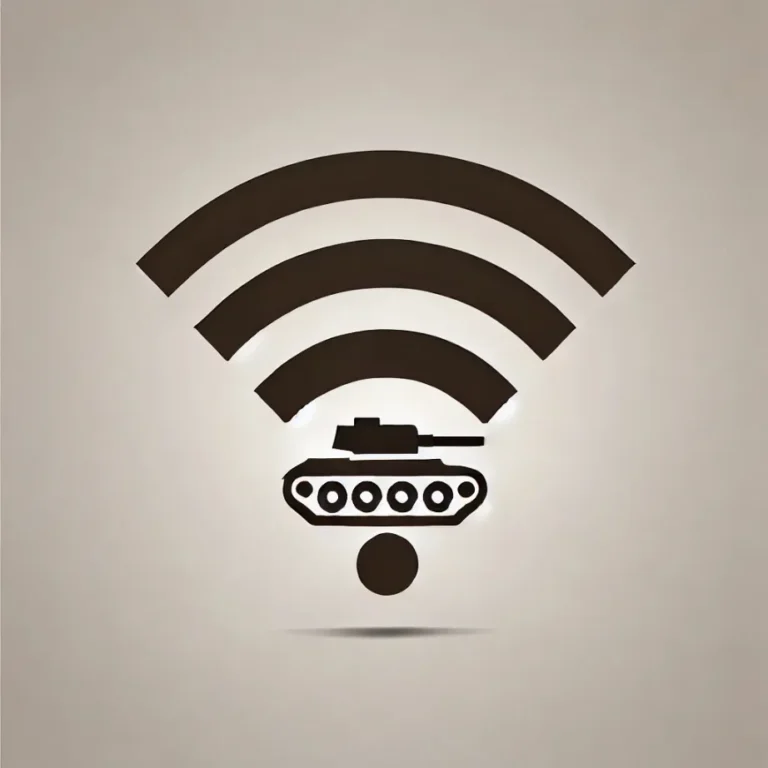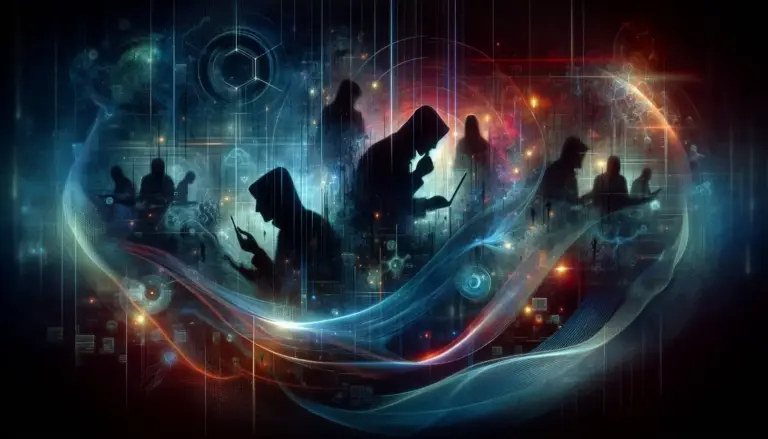It’s the most wonderful time of the year… to catch up on your cyber fiction

Alexandra Paulus, researcher for cybersecurity policy and emerging technologies at the German Institute for International and Security Affairs (SWP), a foreign and security policy think tank, has compiled ten book recommendations from cyber researchers, analysts, and practitioners for your Christmas downtime. They centre around the effects of tech on politics, society, the planet, and relationships – and just so happen to pair excellently with eggnog and gingerbread.
If you have everything you need, does having more matter?
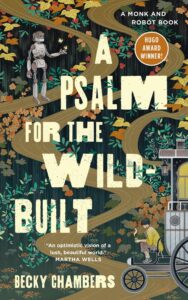 ‘A Psalm for the Wild-Built’ takes place in a distant future where the robot workers and artificial intelligence that once served humanity have chosen to retreat into the wilderness. Becky Chambers imagines a move towards post-capitalist sustainability that sets humans back in small communities and farms. This short and sweet solarpunk novella follows Dex and Mosscap – a therapist monk and a robot, respectively – as they travel through villages on a moon called Panga, seeking to answer the ultimate question: What do people need?
‘A Psalm for the Wild-Built’ takes place in a distant future where the robot workers and artificial intelligence that once served humanity have chosen to retreat into the wilderness. Becky Chambers imagines a move towards post-capitalist sustainability that sets humans back in small communities and farms. This short and sweet solarpunk novella follows Dex and Mosscap – a therapist monk and a robot, respectively – as they travel through villages on a moon called Panga, seeking to answer the ultimate question: What do people need?
This book has sparked interesting debates with friends and family about what an optimistic post-scarcity world can look like. In doing so, it has fulfilled its objective, making us contemplate and ask ourselves, What is the purpose of living? And what does the future we want look like?
Eugenia Lostri, The Lawfare Institute, recommends ‘A Psalm for the Wild-Built’ by Becky Chambers.
How do we remember, how do we persist?
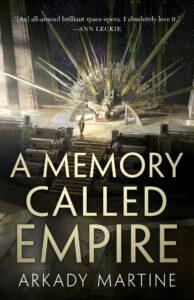 ‘A Memory Called Empire’ follows Ambassador Mahit Dzmare on a mission from the independent station of Lsel to the byzantine and expansionist Teixcalaanli Empire. In her head, she carries an outdated copy of her predecessor’s consciousness. Hers is a desperate gambit to reveal truth while preserving her home. But in Teixcalaan, Mahit is a barbarian, bereft of the networked optical implants reserved for citizens and therefore all but invisible to the city and its functions.
‘A Memory Called Empire’ follows Ambassador Mahit Dzmare on a mission from the independent station of Lsel to the byzantine and expansionist Teixcalaanli Empire. In her head, she carries an outdated copy of her predecessor’s consciousness. Hers is a desperate gambit to reveal truth while preserving her home. But in Teixcalaan, Mahit is a barbarian, bereft of the networked optical implants reserved for citizens and therefore all but invisible to the city and its functions.
Among the sprawling diversity of themes the book explores is technology and our reliance on it for fundamental human acts – knowing, remembering, doing. ‘A Memory Called Empire’ puts a mirror to our world by way of one of the most enthralling science fiction settings in recent memory; there you can learn to remember while forgetting about the dreary winter outside.
Jiro Minier, Deutsche Cyber-Sicherheitsorganisation (DCSO), recommends ‘A Memory Called Empire’ by Arkady Martine.
The social price of a tech giant’s power
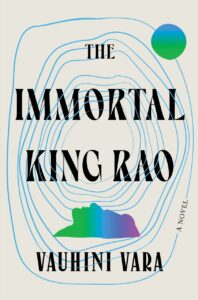 A member of the Indian untouchable caste who becomes the world’s most powerful tech entrepreneur. A global Shareholder Government, led by said tech giant, that rests on The Algorithm. The relationship between a father and his daughter, in which the former provides the latter with a neuro-implant for constant internet connectivity and access to his memories. And a techno-skeptic resistance movement, struggling with how to navigate Hothouse Earth. ‘The Immortal King Rao’ is about all these things and more.
A member of the Indian untouchable caste who becomes the world’s most powerful tech entrepreneur. A global Shareholder Government, led by said tech giant, that rests on The Algorithm. The relationship between a father and his daughter, in which the former provides the latter with a neuro-implant for constant internet connectivity and access to his memories. And a techno-skeptic resistance movement, struggling with how to navigate Hothouse Earth. ‘The Immortal King Rao’ is about all these things and more.
While the transition to the technocracy took place unrealistically smoothly in my view, Vauhini Vara’s novel has stayed with me ever since I read it because it addresses timely and urgent questions: Who checks and balances the power of technology companies? And what is the role and responsibility of the individual?
Alexandra Paulus, German Institute for International and Security Affairs (SWP), recommends ‘The Immortal King Rao’ by Vauhini Vara.
Crypto, tech, and a love story
![]() ‘Cryptonomicon’ by Neal Stephenson is a masterful novel that intertwines the history of World War II cryptography with modern digital security issues. The way it connects the secretive work of WWII code breakers to today’s challenges in secure communication and secure information really brings the importance of cryptography to life – and the technical foundations to your understanding.
‘Cryptonomicon’ by Neal Stephenson is a masterful novel that intertwines the history of World War II cryptography with modern digital security issues. The way it connects the secretive work of WWII code breakers to today’s challenges in secure communication and secure information really brings the importance of cryptography to life – and the technical foundations to your understanding.
Characters range from an ageless, mysterious priest and libertarian cryptographers to members of the anti-Japanese resistance in WWII and poetically inclined soldiers, and their intergenerational family sagas are unconventional and expertly crafted. Humour and a fair amount of nerd culture make complex technical themes accessible and engaging, and there’s even a touch of a love story to add warmth to the plot.
If you’re interested in history, technology, or stories that blend technical insight with personal journeys, ‘Cryptonomicon’ is a great – and long – read. It bridges the past and present of cryptography in a captivating way, offering a satisfying mix of adventure, intellect, and technology that never fails to entertain.
Thomas Reinhold, Leibniz Peace Research Institute Frankfurt, recommends ‘Cryptonomicon’ by Neal Stephenson.
A fragmented portrait of the human impacts of world-altering innovation
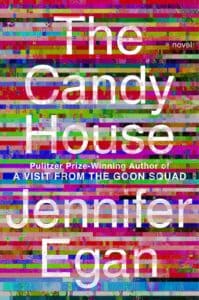 Jennifer Egan’s follow-up to her Pulitzer Prize-winning ‘A Visit From The Goon Squad,’ ‘The Candy House’ begins from the perspective of a visionary on the precipice of creating a futuristic, memory-caching technology. His creation allows users to examine in vivid detail the memories of anyone who uses the service. Each chapter offers a fresh perspective from a distinct , enriching the reader’s understanding of this technology and its implications without slipping into cliché Silicon Valley fluff.
Jennifer Egan’s follow-up to her Pulitzer Prize-winning ‘A Visit From The Goon Squad,’ ‘The Candy House’ begins from the perspective of a visionary on the precipice of creating a futuristic, memory-caching technology. His creation allows users to examine in vivid detail the memories of anyone who uses the service. Each chapter offers a fresh perspective from a distinct , enriching the reader’s understanding of this technology and its implications without slipping into cliché Silicon Valley fluff.
The head-spinning level of detail in this web of characters is fascinating on its own. But what makes this novel essential reading is Egan’s insights into how – as an intermediary between people and their memories – technology can distort and disturb our relationships with others and our conceptions of ourselves.
Sara Ann Brackett, Atlantic Council Cyber Statecraft Initiative, recommends ‘The Candy House’ by Jennifer Egan.
Interplanetary diplomacy gets personal
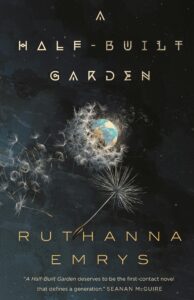 ‘You almost made this planet inhabitable through human-made climate change and cannot be trusted to take care of yourselves, so let us show you how to set up a habitat in a different solar system,’ say the aliens who arrive on earth in 2083. Matters are complicated by the fact that society on earth has reorganized: nation-states still exist, but many people choose to pledge allegiance instead to corporations whose members seek material gain and enjoy performing varying (gender) roles when in public, or to environmentally-minded networks based on algorithmic, decentralized decision-making.
‘You almost made this planet inhabitable through human-made climate change and cannot be trusted to take care of yourselves, so let us show you how to set up a habitat in a different solar system,’ say the aliens who arrive on earth in 2083. Matters are complicated by the fact that society on earth has reorganized: nation-states still exist, but many people choose to pledge allegiance instead to corporations whose members seek material gain and enjoy performing varying (gender) roles when in public, or to environmentally-minded networks based on algorithmic, decentralized decision-making.
I really enjoyed how the ensuing inter- and intra-civilisational diplomatic negotiations are often shaped by cultural notions of technology, gender, and family life – for instance, among the aliens, diplomacy is the domain of nursing mothers. Finally, not only because humanity has reversed climate change, ‘A Half-Built Garden’ spreads some much-needed optimism.
Alexandra Paulus, German Institute for International and Security Affairs (SWP), recommends ‘A Half-Built Garden’ by Ruthanna Emrys.
Grime against Manchester tech capitalism
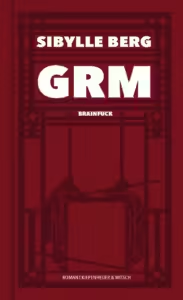 ‘GRM Brainfuck’ is a dystopian novel by the German-Swiss author Sibylle Berg, set in near-future England. All technological development has taken its worst possible course towards state surveillance and economic exploitation. Lacking opportunities to initiate change within the system, the protagonists are left with no option but to use their hacking skills in resistance against the dehumanising technical leviathan.
‘GRM Brainfuck’ is a dystopian novel by the German-Swiss author Sibylle Berg, set in near-future England. All technological development has taken its worst possible course towards state surveillance and economic exploitation. Lacking opportunities to initiate change within the system, the protagonists are left with no option but to use their hacking skills in resistance against the dehumanising technical leviathan.
The tone is blatantly pessimistic, no protagonist is really likable, and even the better-off are not living a self-actualising existence. However, the technical and systemic background of the deliberately pessimistic imagined developments are excellently researched, so there is never a feeling of unnecessary cynicism.
A well-founded thought experiment on near future technological development combined with Berg’s extremely pointed writing style results in an enjoyable, if dark, read.
Nils Brinker, intcube, recommends ‘GRM Brainfuck’ by Sibylle Berg.
When the lights go out
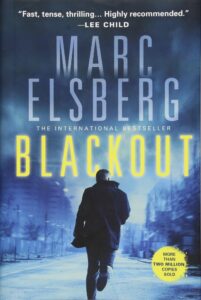
Marc Elsberg’s 2012 techno-thriller ‘Blackout’ remains powerfully relevant, offering a compelling exploration of a global power outage and its catastrophic effects on modern society.
The story begins with a sudden and mysterious collapse of power grids across Europe, plunging millions into darkness. As panic spreads and systems fail, Elsberg vividly illustrated how dependent we are on electricity – and how fragile that dependence truly is – long before it became a pressing issue in political discourse.
The plot follows Piero Manzano, a former hacker turned investigator, who uncovers a shocking conspiracy behind the blackout. He races against time to expose the truth, navigating collapsing systems, cyber threats, and increasing danger at every turn.
Elsberg’s meticulous research and realistic scenarios make Blackout more than a thriller – it’s an eye-opening wake-up call. For readers who love technology-driven thrillers or crisis fiction, this thought-provoking novel is a must-read.
Simona Autolitano, Federal Office for Information Security (BSI), recommends “Blackout” by Marc Elsberg.
A tale of friendship transcending between different realities
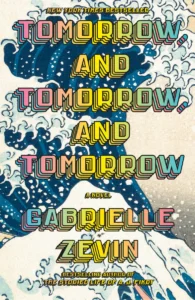 ‘Tomorrow, and Tomorrow, and Tomorrow’ follows the life of a girl and a boy as they grow up while building a video game empire. If you’re not a gamer yourself, the book might help you understand what might draw one into the gaming universe – aesthetics, fun, distraction, connection, healing? – and what might motivate one to embark on the winding journey of developing what I’ve come to see as a work of art.
‘Tomorrow, and Tomorrow, and Tomorrow’ follows the life of a girl and a boy as they grow up while building a video game empire. If you’re not a gamer yourself, the book might help you understand what might draw one into the gaming universe – aesthetics, fun, distraction, connection, healing? – and what might motivate one to embark on the winding journey of developing what I’ve come to see as a work of art.
Yet, the power of the book lies in its portrayal of how two people define and redefine their friendship over time. Some tragic turns felt unnecessary, and be prepared to feel the urge to put the main characters into one room to end a painful chain of miscommunications. Still, it is a tribute to the beauty and power of caring deeply and unconditionally for someone else.
Elena Rückheim, Centre for Humanitarian Dialogue, recommends ‘Tomorrow, and Tomorrow, and Tomorrow’ by Gabrielle Zevin.
‘What is so smart about the end of the human?’
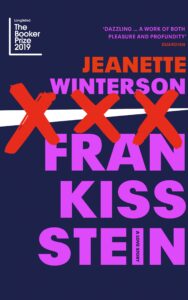
During a sodden sojourn to Lake Geneva in 1816, Mary Shelley enters a now-famous competition to write a horror story. She finds herself drawn not to death, but rather to life and its creation and sustainment. More than 200 years later, in a post-Brexit Britain, a transgender doctor named Ry becomes entangled with a new generation of tech entrepreneurs paving the way forward in transhumanism, cryogenics, and preservation of consciousness outside the body. To support this work, Ry falls into the role of part-time grave robber, even as they grapple with the consequences of these new advancements.
With plenty of wit, wisdom, and raunch, Jeanette Winterson tells these two stories in parallel, reminding us that while science advances, the fundamental questions – who creates life, what it means to be alive, what animates us, and what destroys us – have been with us for generations. Both polemic and satire, ‘Frankissstein: A Love Story’ is a thoroughly enjoyable debate about what makes us human.
Taylor Grossman, Institute for Security and Technology, recommends ‘Frankissstein: A Love Story’ by Jeanette Winterson.











